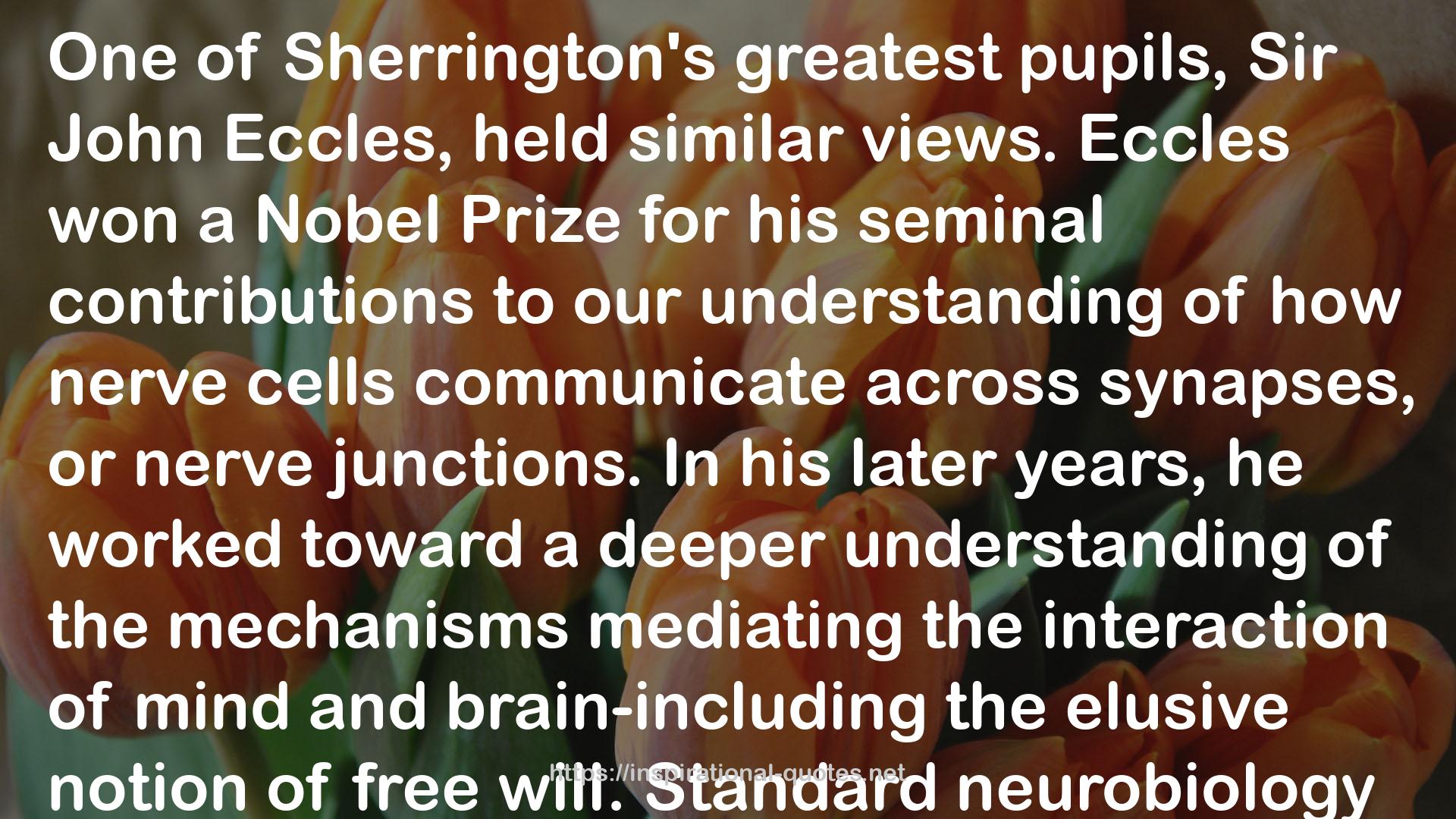" One of Sherrington's greatest pupils, Sir John Eccles, held similar views. Eccles won a Nobel Prize for his seminal contributions to our understanding of how nerve cells communicate across synapses, or nerve junctions. In his later years, he worked toward a deeper understanding of the mechanisms mediating the interaction of mind and brain-including the elusive notion of free will. Standard neurobiology tells us that tiny vesicles in the nerve endings contain chemicals called neurotransmitters; in response to an electrical impulse, some of the vesicles release their contents, which cross the synapse and transmit the impulse to the adjoining neuron. In 1986 Eccles proposed that the probability of neurotransmitter release depended on quantum mechanical processes, which can be influenced by the intervention of the mind. This, Eccles said, provided a basis for the action of a free will. "
― Jeffrey M. Schwartz , The Mind and the Brain: Neuroplasticity and the Power of Mental Force
